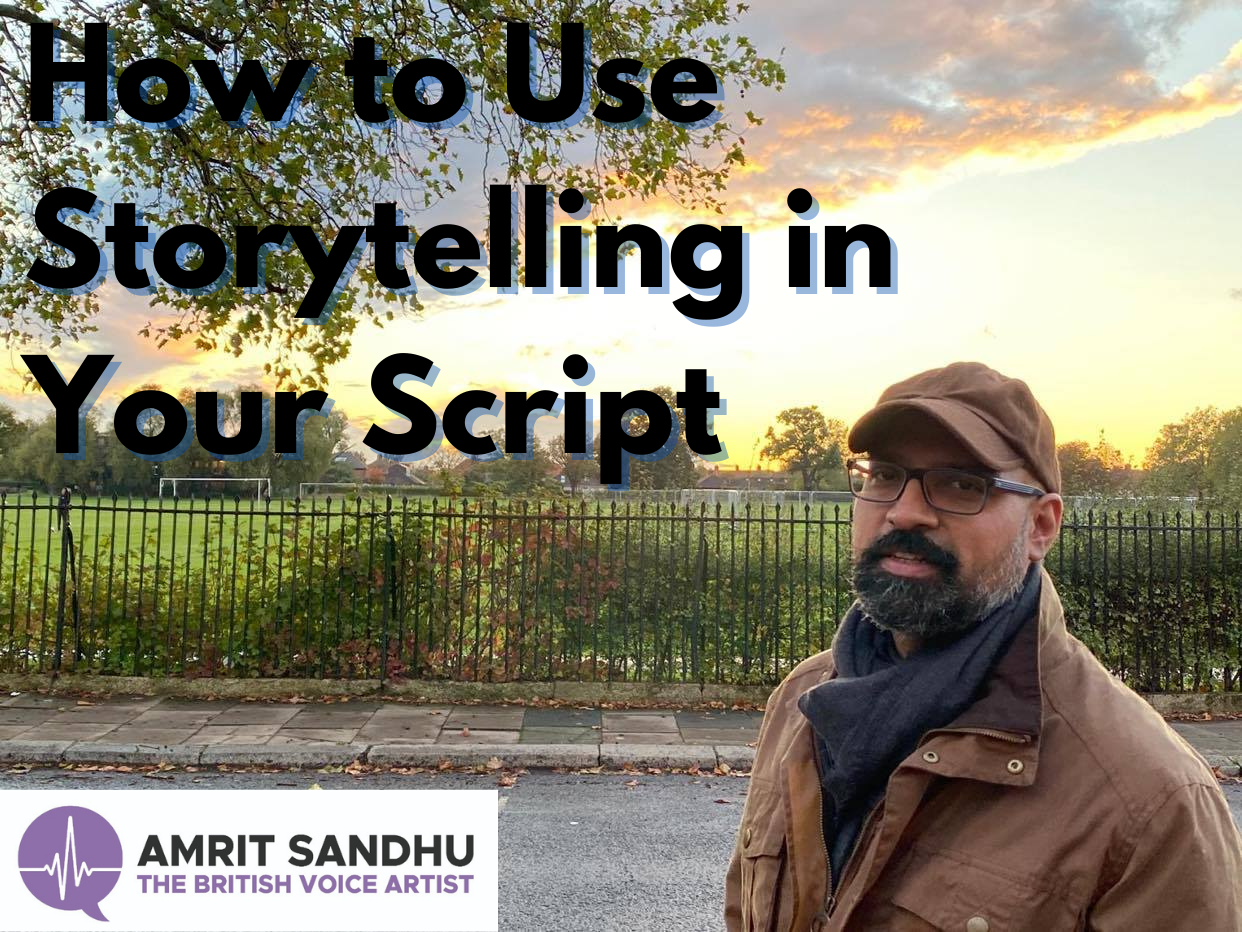Voice-over scripts can be tricky to write, especially when you want to keep people’s attention. However, a typical sales pitch as a script will not always captivate people. One of the best types of voice-over scripts are ones that tell stories because they engage people, making listeners get fully immersed into your script.
Why Should I Tell Stories in My Scripts?

Stories naturally engage people. Think about it – whenever we watch movies, listen to music, etc., we are essentially listening to a story. So, people are more likely to listen when they feel like they are hearing a story. Therefore, incorporating storytelling into your voice-over scripts whenever possible is key.
Create Characters

Storytelling involves immersion, often creating relatable or interesting characters for your listeners to understand the story more. So, adding a character to your story can help you. Of course, you want to make a character that will help your marketing techniques. So, consider making characters that will be relevant to your product or service.
You can create a character that fits into the mold of your target audience. For instance, let’s say that you sell milk to encourage children’s growth. In that case, your main character could be a parent noticing that their child may lack proper nutrients. Your secondary character can be the child, gaining more strength and confidence after they drink the milk.
Add Conflict

A good story always has conflict, and conflict always grabs people’s attention. Stories need plots because that is what keeps people listening to what you have to say. You can think about conflict as the main “plot” of your story.
The simplest way to add conflict to a story is by creating a problem, and that problem will require a solution. The solution to that problem can be solved by your product or service. So, you can incorporate that into your script, usually quite early in the story.
Let’s say that your company sells vitamins to boost people’s energy. You can start off your script by stating a problem, i.e. our conflict. For instance, you can state that many people get tired throughout the day, making it difficult to finish their daily activities and enjoy themselves at night.
Ideally, you should mix a character, as mentioned earlier, into your story to make the plot more meaningful. Let’s say that your character is named Joe, a hardworking parent who works long shifts throughout the day. Joe wants to have enough energy to spend time and do activities with his son after work. So, the solution would be your vitamins.
Another method to add a plot/conflict to your story is by rewording your script carefully. Common statements like “The best vitamins in town,” may not sell as well as, “The vitamins that you need to boost your day.”
The first example, “The best vitamins in town,” is a bit lackluster, and does not encourage the audience to do anything with that information. It does not directly present how your product can improve their lives. However, the second example presents a conflict subtly, by suggesting that you need more energy throughout the day.
Have an Ending

No one likes an open-ended story, so make sure to always have a resolution ready for your listeners at the end of your script. You want your audience to have some form of closure at the end. Plus, an ending will give them a clear idea of what message you want to send them. Therefore, you can’t skip out on a good ending.
Let’s relate it to our earlier example of character and plot with our character Joe, but let’s give him a proper ending. So, your character Joe discovers your vitamins. Once Joe takes your vitamins, he has enough energy to spend time with his son after work, creating your script’s ending.
If your script does not have a direct character or solely relies on voice-over narration, then you can simply tweak your words to create an ending. For example:
Are you tired of feeling tired after your workday? Then we have got the solution you need. Take our vitamins to get a boost to have enough energy to enjoy your whole day.
Make It Natural
One of the most crucial parts of a storytelling voice-over script is by making sure that it is natural. Storytelling is a natural form of human communication, and we can see many examples in art forms like old cave paintings. Therefore, your story should flow naturally, and sound real.
Try not to force a story – work with whatever you feel naturally flows together. There are typically three components to a story, which I mentioned earlier: Characters, Conflict, and Resolution.
Do you have any helpful tips for scripts that tell a story? I encourage you to mention them in the comment section.




